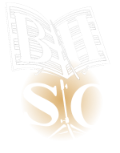It would pain Sullivan greatly to know that his posthumous reputation exists almost solely alongside that of the dramatist William Schwenck Gilbert, with whom he collaborated so successfully in the genre of light opera. His scores for HMS Pinafore, The Mikado, The Pirates of Penzance and many others were so extravagantly successful that his more serious work – of which he was infinitely more proud – has largely been forgotten. But his other compositions – including hymns (‘Onward, Christian Soldiers!’ is his), a ‘grand opera’ Ivanhoe (written during a quarrel with Gilbert, supposedly over a new carpet at the Savoy Theatre which had been built with proceeds of their productions) and incidental music to many of Shakespeare’s plays – still deserve to be heard.
Arthur Sullivan was born in London in 1842, the son of the bandmaster to the Royal Military Academy Sandhurst. By the age of eight, he had already learnt to play all of the instruments in his father’s band and at 14 he won the first Mendelssohn Scholarship to the Royal Academy of Music. This scholarship allowed him to study at the Leipzig Conservatoire, where he had the satisfaction of hearing his incidental music for The Tempest played. Back in London, in 1862, a concert of this music, played at Crystal Palace, immediately made his name – there was so much public demand that the concert was repeated the following week.
The music to The Merchant of Venice was written for a production of the play at The Prince’s Theatre, Manchester. The music is concentrated on a single scene – a lavish masque during which Jessica and Lorenzo make good their elopement. The following was written by Sullivan’s friend George Grove (editor of the eponymous dictionary of Music) for a performance given at Crystal Palace in 1871:
‘When the music begins, the stage is empty and night is approaching. The distant cry of the gondoliers echoing along the canals, and the voices of the masquers as they approach nearer and nearer are all depicted in the music. A lover serenades his mistress, the masquers gradually throng the ground, and the revelry begins. The dances are first a bourrée, the old-fashioned heavy measure; next a grotesque dance for Pierrots and Harlequins; and thirdly a general dance in modern waltz rhythm. Night has settled down on the scene when Jessica makes her escape; after this the fun waxes furious, and midst the glare of torches, the glitter of coloured lanterns, and the shouts and songs of the revellers, the curtain descends.’
The success of the music meant that it was often played without an accompanying production, and a suite consisting of four movements (1,3,5 & 7) was regularly performed during the composer’s lifetime. This is what we are playing tonight. Perhaps you will agree with a Times review of a performance given in 1908, though the St Andrew’s smoking policy cannot allow you to test it to the full:
‘Although the music is by no means as original as many of his other works, it is dainty and fresh and quite pleasant to listen to through a cloud of tobacco smoke.’
Willo Horsbrugh, 2nd Violin

